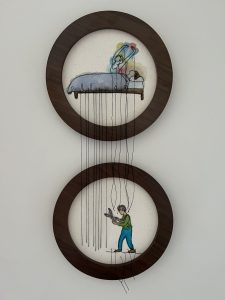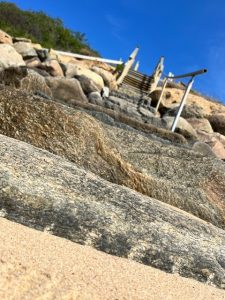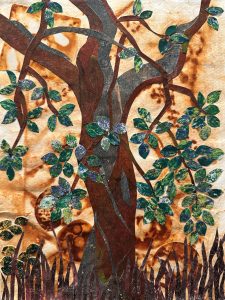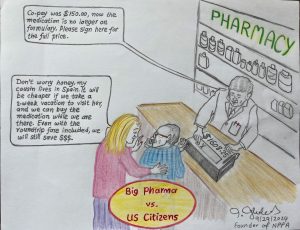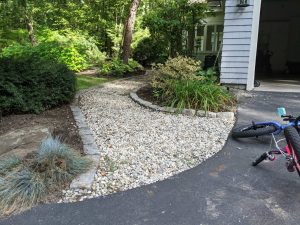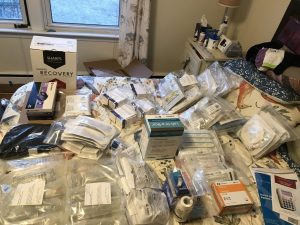- Home
- /
- Latest Voices
- /
- Page 47
Latest Voices
It Could Have Been Me
When I was a sophomore in high school, I went with the band director’s son and wife to a weekend band clinic a couple of hours away from my South Carolina home. This was the 1950s, when bench seats in cars were common, so we all rode in the front seat. On the way home, Mrs. Mills suggested we stop in a town forty minutes from home to attend church—not an unexpected suggestion in that Bible Belt place and time.
It Was My Choice, Not an Accident
As my parents aged, accidents became an integral part of their lives—and mine, as their caregiver. These accidents ranged from falling to losing bladder and bowel control. Each time something happened beyond my parents’ control, they lost a part of themselves—of their sense of independence and adulthood. Perhaps Jacques said it best in William Shakespeare’s Twelfth Night with the final lines of his “All the world’s a stage” soliloquy: “Last scene of all,/That ends this strange eventful history,/Is second childishness and mere oblivion.”
April More Voices: Accidents
Dear Pulse readers,
When I was a college sophomore, my mother called me in tears to tell me that one of my Canadian cousins had died in a car accident. A bright, vivacious university student, Orianne had been dozing in the back seat of a Volkswagen beetle driven by a friend, who’d apparently lost control of the car. It swerved off the road and rolled over, killing her.
No one else in the car was injured.
An Unmeasurable Vital Sign
“How do you do it?” my dear friend asks me. A marriage and family therapist, she finds it hard to hear about the physical ailments of my senior patients—all of them over sixty-five, all homebound due to mobility impairment from a serious illness or injury. “I could never do it,” she says. “With my patients, I help them create new beginnings. For yours, there are none.”
Through Their Last Days
John was sitting up in bed as I approached his room. “Come on in, Sister. Father has just left.”
Somewhat hesitant, I entered the room aware that his wife and daughter were in tears. I asked John if there was anything I could do for him. “Sing for me” he replied, and I began singing the words to YOU ARE MY SUNSHINE. John immediately bellowed out the song, and his wife and daughter joined in. Through their tears they gave me the courage to enjoy a heartwarming visit with John.
Watermelon Pickles and Records for the Blind
The ticking of a hand-wound clock and the voice of my father’s aunt were what I first noticed as I tried to sit quietly on a Victorian chair with curved wooden legs and a not-very-soft needlepointed seat. I wasn’t able to sit still for long. “Go into the kitchen and get a watermelon pickle,” my great-aunt said merrily. Legally blind due to glaucoma, she could see only shadows and silhouettes. I was an avid reader as a child, so blindness terrified me. Although she applied drops to her cloudy eyes, there were limited treatments and no cure in 1965.
On Living in the Moment
When Omicron hit, we were planning my father’s eighty-fifth birthday celebration. We were vaccinated and boosted, so it wasn’t Dad we were worried about. It was my brother Jeff who needed extra consideration.
Taking Courage to Heart and to the Heart of Medicine
Few individuals are called upon to be heroes like Ukrainian president Volodymyr Zelenskyy who, in choosing to stay and fight a massive, invading army, faces a real possibility of imprisonment and death. This is true courage.
Within the medical profession, there are also wars to be fought that require true courage. One thinks of the late Dr. Paul Farmer, who worked tirelessly throughout his career to bring high-quality health care to Haiti, Rwanda, and other resource-poor nations around the world.
Searching for Activism
My senior year in college, I took a course called Women and Radicalism. It was an exciting class. We studied radical movements on the left and right, with a focus on women’s participation. The course featured a weekend retreat with women activists. For two days, women took the stage to describe their causes and advocacy roles. I attended many sessions, in awe of these phenomenal women who were making a difference in the world. I noted that most of them had been thrust into their cause by a personal adverse event, such as gun violence or an environmental catastrophe.

